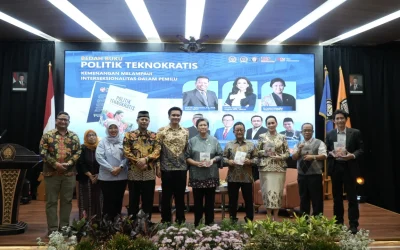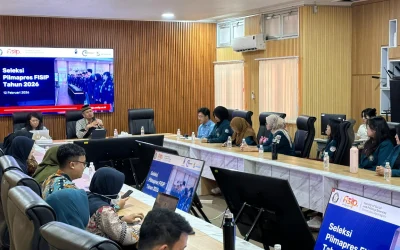A recent study led by Reni Shinta Dewi highlights the importance of adaptive capability for Small and Medium Enterprises (SMEs) in enhancing their competitive advantage in the Industry 4.0 era. The research emphasizes how adaptive capability becomes a crucial factor in enabling SMEs to innovate in response to rapidly changing environments. Using structural equation modelling, data analysis from 220 SMEs shows that adaptive capability positively impacts innovation and competitive advantage, supporting the Dynamic Capability View, which asserts that competitive advantage is not solely derived from tangible assets but also from an organization’s ability to adapt and innovate in a changing environment.
The study underscores that in the Industry 4.0 era—marked by technological advancements and rapidly shifting market dynamics—SMEs face significant challenges in driving innovation and maintaining competitiveness. The authors argue that SMEs need to develop their adaptive capabilities, which include the ability to quickly identify and respond to market opportunities and threats, integrate new knowledge, reconfigure organizational structures, and enhance innovation performance. The study also identifies innovation as a mediating variable between adaptive capability and competitive advantage, stressing the need for SMEs to cultivate an innovative mindset to thrive in a competitive landscape.
Methodologically, the study employs a quantitative approach, collecting data through questionnaires distributed among SMEs in Central Java, Indonesia. The analysis reveals that most respondents have experience in the batik industry and have been operating for several years. Through factor analysis, the study identifies key dimensions of adaptive capability, demonstrating its multifaceted nature. The results affirm that enhancing adaptive capability is crucial for SMEs not only to survive but also to excel in the increasingly competitive and dynamic business environment of the Industry 4.0 era. The researchers suggest that SME owners should be more responsive to learning new things and enhancing their experiences through training to address the dynamic changes in the business environment.
Source: Dewi, R. S., Alhabsji, T., Arifin, Z., & Abdillah, Y. (2020). Adaptive capability: Capability to create innovation and competitive advantages of SME’s in the industry 4.0 era. International Journal of Innovation, Creativity and Change, 11(2), 124-143.
Author Information:
Dr. Reni Shinta Dewi, S.Sos., M.Si. is the Head of the Bachelor’s Program in Business Administration at Universitas Diponegoro. She holds a Bachelor’s degree from Universitas Diponegoro, a Master’s degree from the Universitas Indonesia, and a Doctorate from Universitas Brawijaya.
Contributor: Wulan Safitri
Translator: Nur Inayah





0 Comments